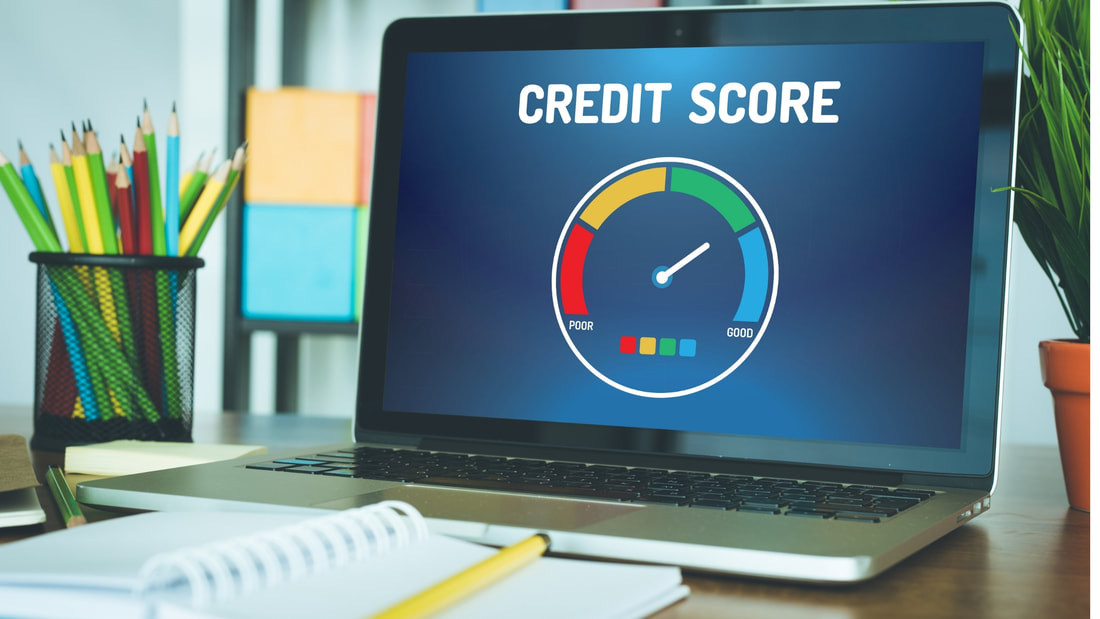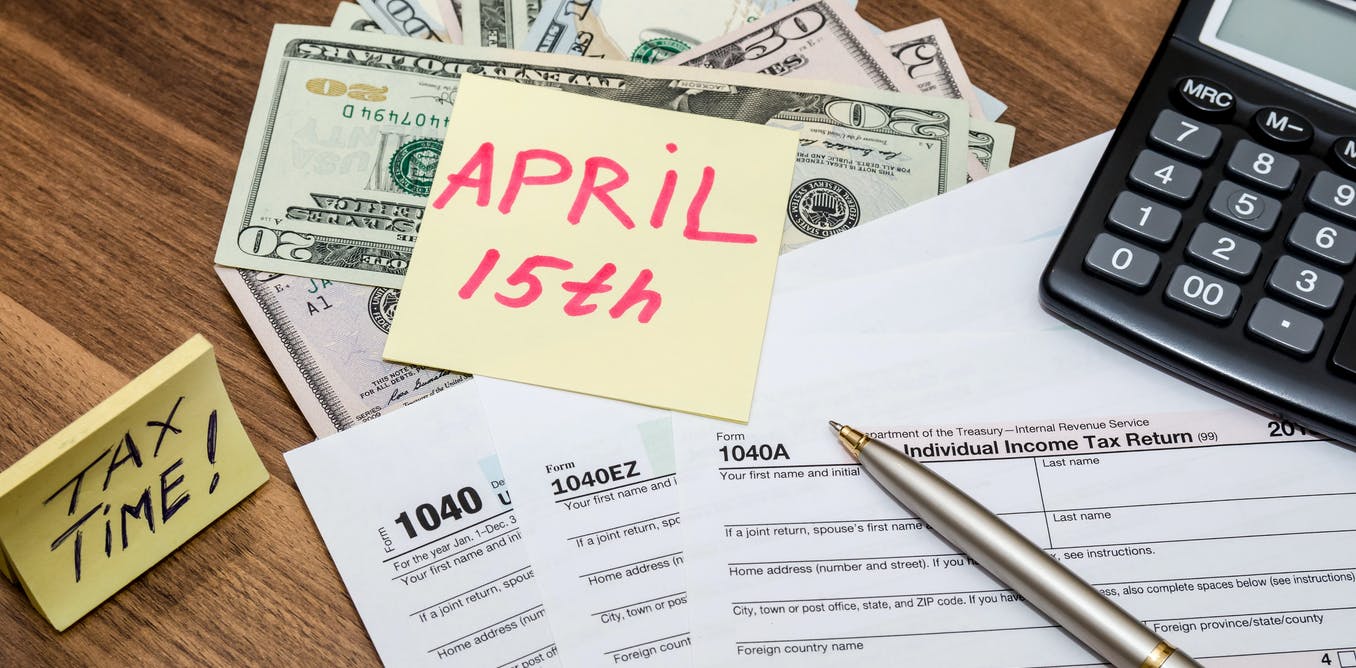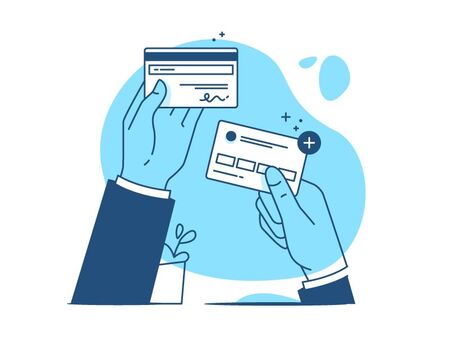|
If you’re interested in buying a house or purchasing a vehicle, then you’re likely familiar with credit scores. Your credit score estimates the likelihood of you repaying your debt, and for the most part, scores around 675 or higher or considered good credit.
What does your credit score mean? Your credit score is a three-digit number between 300 to 850 that estimates how likely you are to pay your bills and repay borrowed money. Your credit score is developed based on mathematical formulas and past actions. While a credit score of 675 or higher usually indicates that you’re a good credit risk, a low credit score will not stop you from being approved for credit. If your score is not in the ideal range, you may be approved for credit, but will be required to pay higher interest or put down a deposit. Several factors affect your credit score. The two most important factors are paying your bills on time and limiting how much you owe (compared to how much your creditor is willing to loan you). Credit scores reward people who pay their bills on time, and a misstep here can be extremely costly. A late payment of 30 days or more past due can affect your credit score for years. Credit utilization is also very important, and it’s best to avoid using more than 30% of your credit limits. Other factors that go into your credit score are credit age, credit mix, and how recently you’ve applied for more credit. You can be rewarded for having long-standing accounts and a variety of credits, but you can be penalized for having more frequent inquiries. Your credit score is important to securing new lines of credit, but it is not the only factor that credit lenders look at. Don’t be discouraged if you have a subprime credit score. Fortunately, there are ways to help raise your score. If your debt is too high to manage, or you’re near your credit limits, consider enrolling in a debt management program to pay down your debts efficiently. Most debt programs reflect favorably on a credit score because they reduce interest rates and therefore more of your monthly payment goes towards paying down the principal balance. Once your current debts are in control, paying off defaulted bills and opening new lines of credit can help you slowly improve your score for the future.
0 Comments
Credit cards are great ways to build your credit score and have emergency money, but interest rates can be confusing and very expensive. Credit card interest mostly depends on how you manage your accounts. If your credit card has an annual percentage rate of 20%, it doesn’t necessarily mean you’re getting charged 20% interest once a year. Your actual interest rate can be higher or lower because it is calculated daily and is only charged if you carry debt from month to month. How to calculate credit card interest 1. Change your annual rate to a daily rate. The first step to calculating your rate is to convert your annual percentage rate to a daily rate. You can do this by dividing it by 365. The result of this calculation is called the periodic interest rate or the daily periodic rate. 2. Review your average daily balance. Your second step is to figure out your average daily balance. Start with your unpaid balance and go through it day by day, writing down each day’s balance. Once you have done this, you must add up all the daily balances and divide them by the number of days in your billing cycle. 3. Do some math. Finally, multiply your average daily balance by your daily rate and then multiply that result by the number of days in the billing period. Your credit card issuer may compound interest daily or monthly, so your actual interest charge may differ slightly from this amount. Compound interest is where you add the accrued interest to your unpaid balance, meaning you will pay interest on interest. To convert your annual interest rate to a daily interest rate based on simple interest, divide the annual interest rate by 365, the number of days in a year. For example, say your personal loan charges 14.60 percent simple interest per year. Divide 14.60 percent by 365 to find the daily interest rate equals 0.04 percent. So, if your loan balance is $8,000, you would be paying $3.20 in interest each day. A debt management program can reduce interest rates significantly, reducing the monthly cost of your debt payments. The lower your interest charges, the more money can be used to pay down your principal balance, getting you out of debt faster than you would on your own. A debt-to-equity ratio is a way of measuring if a corporation or group is being financed through debt or owned outright by funds/assets. Debt-to-equity ratios are commonly used and referenced in the financial world, and as such are important to understand. Knowing what is good and bad when it comes to debt-to-equity ratios can help keep groups financially secure long-term. ‘Good’ and ‘Bad’ Debt-to-Equity Ratios Debt-to-equity ratios are calculated by dividing total liability (debt) by equity. A 1.0 or less is a safe or less-risky ratio to have. A number higher than 2.0 is thought to be less secure. However, a good debt-to-equity ratio does not guarantee that a business will be successful. Personal Debt-to-Equity When it comes to a personal consumer’s debt-to-equity ratio, 80% is the limit for safe financial housekeeping. If your debt-to-equity ratio exceeds 80%, lenders and creditors are going to consider you a risk and may avoid extending you further credit or funding your loan. Unfortunately, most young people find themselves in 80% territory when working to accumulate assets. Most people do not begin their adult lives with significant savings, and often buy homes with a minimum down payment. This common transaction gives almost every young family a high debt-to-equity ratio. Over time it is possible to reverse a high debt-to-equity ratio by paying down outstanding loans and carefully avoiding new debts while carrying large existing debts. This is a GREAT example of why we recommend our debt relief program to anyone overwhelmed by existing debts, because we don't believe people should take on more debt to pay off existing debt! Typically, new loans carry higher interest rates and have little to no advantage over simply consolidating the debt into a relief program and negotiating a better rate. Investing Considerations Because of the varying circumstances in which different industries operate, a high debt-to-equity ratio does not always spell doom. The ratios are used by investors to decide the risk of investing in any given company, keeping in mind the risk the company itself has accumulated. Diverse industries and situations make it difficult to determine the health of a business using equity ratios alone. A good debt-to-equity ratio can be described as a company that has low liabilities compared to assets, while a bad ratio can be understood as a company that operates in debt. It is considered safer to be financed by equity and income, rather than debt- but this principle can be overlooked, depending on the industry. Some people may want to invest in a company that has more debt than others, as long as the company in question has a good history making wise financial decisions, or is very capable of generating income to repay debts. In addition, some industries simply have a higher debt-to-equity ratio and so cannot be faulted for the financial ratio outcomes of the business. In the end, having a high debt-to-equity ratio whether you’re a large corporation or an individual person can cause stress and struggle. If you yourself are struggling with consumer debt, allow Golden State to help you. We have realistic plans that can help you consolidate your debt and work towards becoming debt-free. See how we can help you live a life more financially free. Millions of people find themselves in debt that can become extremely difficult to get out of. In the wake of the worst national crisis in modern times, debt issues have grown exponentially. Now more than ever, it is important to practice proper financial techniques and to learn how to be debt free. For those with debt issues, or those who want to ensure healthy saving practices, there are a few things that should be done in order to safeguard funds for the future!
Pay Down Larger Debts & Save What You The most important first step is to make a plan. By breaking down your income, you can plan out how much you have available to pay down your debts, and how much will be left to save. While it can feel good to have savings in the bank, it makes more financial sense to first repay your debts (rather than sitting on a savings account that pays low interest rates.) For those who are in financial debt, planning out expenses and making a schedule for debt payments can be extraordinarily helpful. Sell What You Do Not Need This is not a strategy for generating consistent income, but when you are finding yourself in debt or fear of financial hardship, it makes sense to sell the items that you do not need. This not only generates extra money to pay off expenses, but also helps declutter your home and your life. Indeed, markets like eBay or Facebook were meant to help get rid of things that you have no use for anymore. It also pays to keep kid’s toys, clothing and furniture in mind. Items that you or your family are growing out of can be sold for decent prices on one of the many marketplaces now popping up on the internet. Find Extra Sources of Income If you are looking to get out of debt, start budgeting time to spend on other income pursuits. Fortunately, we live in a time where it is possible to make money from your home or car. There are many ways to make supplemental income, from part-time jobs to freelance positions to paid reviews. You could donate plasma, which is now becoming a viable way to make money in free time as it is sorely needed. You could attempt to grow a social media following and monetize your content. Most of these things will take time, but if you do them consistently and plan for the long-term, you can better avoid the stress of debt (and will have less free time for spending!) Debt freedom is something with which many people struggle. We are living through a time where the unemployment rates have soared higher than any season in the last seventy years, where the national minimum wage is not enough to afford even a simple living, and where a college education is practically unaffordable, it is important to know how to handle debt. By planning, scheduling expenses, using savings, selling what you do not need and pursuing other sources of income, you can keep control of your debt and secure a successful future. Using your tax refund (or stimulus checks) to make extra payments towards your debt program balance is an excellent way to reduce your debt burden.
Pros: If your credit card has an annual percentage rate (APR) of 25%, paying off $2,000 in debt now will save you roughly $500 in interest over the next year. Lower credit card balances mean lower monthly payments. Paying off a card balance entirely translates into one less bill to pay, month after month. Once your debt account is paid down, you’ll have monthly funds to put towards other priorities (or wish list items). Reducing your credit card balance will help to boost your credit score because it will free up some of the available credit that is granted to you by your creditor. If your total credit card limits add up to $10,000 and you have a current balance of $9,000, you are utilizing 90% of your available credit. If you contribute $1,000 toward your debt program, your credit utilization improves by 10%. Cons: A common downside to using tax refund (or stimulus money) to pay off debt is that you can’t use it for your other priorities. There are many other events that come up in daily life which require a good chunk of change to afford, so it’s important to take your current situation into account. However, keep in mind that you once you pay down your debt balance, you can always use the credit you’ve freed up to pay for the priority purchase (medical, home repair, childcare, car repair etc.) Most creditors offer great benefits for making purchases with their credit card, like purchase protections and rewards. Why a debt program contribution could be better than paying off an installment loan. Generally speaking, paying off debt helps your credit. At the most basic level, it marks the successful repayment of your debt—one of the very things your credit score is meant to track. However, if your tax refund was big enough that you could pay off the rest of your car loan, personal loan or mortgage, it wouldn’t necessarily improve your credit score. While successfully paying off an installment loan is a good thing, doing so means your loan account will drop off of your credit report. This reduces the diversity of your credit mix and/or lowers the average age of your accounts, which in some cases could reduce your credit score. This doesn't make paying off your loan a bad idea—after all, that's the idea of a loan. But if you're looking for a way to boost your credit score quickly, this may not be the way. In summary, using your tax refund to pay down your debt program is an excellent option. Imagine the satisfaction you’ll get from being a little bit closer to your debt free goal! Use this simple checklist to ensure that you’re getting the most out of taxes, while remaining confident that you’re not going to get a tap on the shoulder in the next 7 years :)
1. Get free (or inexpensive) help with your taxes When you do your taxes on your own you run the risk of missing out on money saving deductions and credits. Make sure you are getting the most out of your taxes by looking for free help or inexpensive help from an online company. There are a few free assistance programs available to individuals/families below a certain income level, or for senior taxpayers. Search online to find one in your area. Paying a little bit for professional assistance can be a good value if you’re eligible for several deductions and tax credits. 2. Confirm your filing status Depending on your family arrangement, you may be eligible to file as single, head-of-household, qualifying widow or widower, married filing jointly, or married filing separately. The way you file affects your tax rates and the deductions you claim. Filing as head-of-household, married, or qualifying widower, for example, means you won't move to a higher bracket until you earn more income. Take a minute to investigate which status you’re eligible for, to ensure you’re choosing the right one (with the most savings!) 3. Do the math! Itemizing vs Standard Deduction It’s not as complex as it seems. You have the option to itemize instead of claiming the standard deduction. While the standard deduction allows you to deduct a flat amount from your taxable income, itemizing allows you to add up all your deductions and apply it the same way. Itemized deductions are made up of a list of eligible expenses. If your eligible expenses don’t add up to as great of a deduction as the standard deduction, take the standard deduction!! You can claim whichever amount lowers your tax bill the most! Keep in mind the standard deduction you receive varies depending on your filing status (reference item #1) 4. Saving for retirement reduces your taxes Did you know that contributing to your workplace 401(k) can help you achieve big tax savings? You can deduct the entire amount of your contribution from your taxable income, up to annual limits. Depending on income, you may also be able to deduct contributions made to an IRA. You can claim a deduction for contributing to these retirement accounts even if you don't itemize. We highly recommend trying to max out your contribution to meet the annual limit because the more you contribute the more you can save. You’re effectively reducing your tax bill while setting yourself up for a more secure future! 5. Deduct more by establishing a Heath Savings Account If you have a qualifying high-deductible health plan, you are entitled to make deductible contributions to a HSA (Health Savings Account). Contributing to a HSA has major tax advantages because you can deduct for contributions as you put money into the account and won't be taxed on withdrawals as long as you use the money for an eligible healthcare expense. You have the option to either withdraw the funds from your HSA as you need them to pay for care, or you can keep the funds invested and let them grow! 6. Medical expenses can help you qualify for a deduction If you itemize, as opposed to taking a standard deduction, you may be eligible to claim a deduction for medical expenses that exceed a certain percentage of your income. For 2020, you can deduct expenses that exceed 10% of your adjusted gross income. Keep track of your medical expenses to see if you exceed the threshold. If you’re able, be smart about when you schedule procedures so you can bundle your medical costs into one year. This will help you to accrue enough medical expenses to get above the threshold that is required to make them deductible. 7. Children & Dependents tax credit The Tax Cuts and Jobs Act raised the income level at which the child/dependent tax credit is available and doubled the amount you receive for this credit, providing significantly more tax savings. A portion of this credit is even refundable, which means you're entitled to get money back if the credit value exceeds the taxes you owe. Keep in mind that you’re entitled to a $500 credit for each additional dependent you are qualified to claim. If you provide financial support to extended family members or non relatives, you may qualify for this credit. Take a moment to investigate whether your contributions to a family/friend in need meet the definition of a dependent. Additionally, adopting a child could entitle you to a tax credit (which helps supplement the expensive cost of adoption). The credit is available for every child you adopt, regardless of your method of adoption. The claim is available to those who privately adopt from a domestic agency, internationally adopt or adopt out of foster care. It is a non-refundable credit that can be carried forward for five years. There are limits to receiving tax credit for adoption, dependent on income levels. 8. Student loan and education credits If you pay student loan interest, you can deduct up to $2,500 of the interest you pay from your taxable income. As an added bonus, you're entitled to claim this deduction even if you don't itemize, provided your income isn't too high. The American Opportunity Credit and the Lifetime Learning Credit can both save you thousands on your tax bill if you pay eligible educational expenses for you or a dependent. While the American Opportunity Credit is pretty restrictive in terms of who can qualify. However, the Lifetime Learning Credit is far more flexible and could entitle you to a deduction just for taking a class to improve your skills. Both of these tax credits are dependent on your income levels. 9. Claim credit for working Have you heard of the Earned Income Tax Credit? Low and middle income families may be eligible for the EIT credit. Depending on your income, family size, and the amount you earn - it could be quite a valuable credit. It is a refundable credit, meaning you can get back money even if you didn't pay enough taxes to cover the amount of the credit. You'll need to be sure to submit a tax return to claim the credit though. 10. See if you're eligible for a sales tax deduction If you itemize your deductions, as opposed to taking the standard deduction, you can claim a deduction for up to $10,000 in state and local taxes paid. If your state doesn't collect income taxes or if you didn't have much taxable income, claiming the sales tax deduction could maximize your savings. However, for many people, it also makes sense to claim a deduction for state income taxes. 11. Claim a deduction for pre-paid interest on a new mortgage When you obtain a mortgage on your home, you have the option to buy points. Points reduce the interest rate you pay. Points are essentially prepaid interest. If you do elect to buy points on a mortgage, you can claim a tax deduction on the cost. You're allowed to deduct mortgage interest on up to $750,000 of mortgage debt, so you can claim a credit for the full value of points if your debt is below that level. If you meet certain requirements, points can be deducted in full in the year you buy them, including using your mortgage to acquire a new home or improve your home. If you took out a refinance loan and didn't use the proceeds for home improvement, you can deduct the points on a prorated basis over the life of the loan. 12. Energy-efficient upgrades can reduce taxes Eligible home improvements for energy efficiency can qualify you for tax credits! Installing solar power or wind power, a geothermal heat pump, or making other eligible upgrades provide a dollar for dollar reduction on your taxes. Not only will this help reduce the amount you pay the IRS, you could reap saving for years to come on your electric bill when you take advantage of these credits! 13. Investment tax considerations Investment income is eligible to be taxed at a lower capital gains rate than wages from income, as little as 0%. Take advantage of the opportunity to earn income at a lower rate by making investments with your extra income. When you consider selling your investments, keep in mind that the low capital gains tax rates normally only apply to long term investments. Did you know that losing investments can earn you a tax deduction? It is possible to offset your capital gains by claiming losses. In this case, you’d avoid paying income on your investments, depending on how much you gained/lost. A claim of capital losses can reduce your other taxable income by up to $3,000. It might be a good idea to harvest tax losses by selling your poor performance investments, helping you to score some additional tax breaks. 14. Take advantage of deductions for business income The Tax Cuts and Jobs Act changed the rules on business taxes. One of those changes involved introducing a deduction for up to 20% of business income for qualifying businesses. The Qualified Business Income Deduction could be available even for sole proprietors who earn income from business activities. So if you have a side gig or run your own company, find out if you're eligible. You should also keep track of other business expenses that qualify you for a deduction to reduce your taxable income even further. Another big change that the Tax Cuts and Jobs Act made was cutting the corporate income tax rate (C-Corporations). If you run a business, make sure you've structured your company the right way to get the lowest tax rate for your situation. While C-corporation puts you at risk of double taxation (since the company pays taxes and you also pay taxes on distributed profits), it makes sense to explore this option and others before selecting the right business structure for your entity. We sincerely hope that this checklist helps you to file your taxes successfully (and beneficially!) Credit bureaus are well known for tracking consumers’ credit history, including tabulating such details as whether they pay their bills on time and how much debt they carry. But the bureaus also maintain a lot of other personal information about consumers. For example. consumers’ salary information can be up for grabs. Equifax, one of the three national credit bureaus, maintains a private database of salary records on more than 33% of U.S. adults — this information was acquired when Equifax purchased a data-mining company in 2007. Equifax can sell this data to eligible lenders, including mortgage and car finance companies, that are trying to gauge a consumer’s ability to repay a loan. Equifax, says the company provides salary information only when permissible under the Fair Credit Reporting Act. 1. Selling consumer data is a primary revenue source for the credit bureau industry. Each of the three major credit bureaus, Equifax, Experian and TransUnion, maintains more than 200 million files on consumers, tracking about 63% of the U.S. population. And the bureaus selectively sell that information to lenders and other companies, including insurers and debt collectors. That’s largely how credit card solicitations end up in consumers’ mailboxes. Card issuers pay credit bureaus for the contact information of individuals who meet specific criteria, like a certain minimum credit score. Similarly, mortgage lenders pay bureaus for a list of consumers within a specific credit score bracket and mortgage balance so that they can contact them with refinancing offers. Lenders also pay the bureaus for updates on existing customers: Some card issuers will pull credit scores on their cardholders to determine if they’ve become riskier. They can use a lower credit score as a basis for cutting a customer’s credit line or increasing their interest rate on new purchases. To be sure, the Fair Credit Reporting Act states that credit bureaus can provide consumers’ information to companies that plan to make a firm offer of credit. In some cases, consumers can benefit from this dissemination, because they stand to receive loan offers that are less expensive than what they may currently have. Individuals who’d like to avoid solicitations can remove their name from the lists that credit bureaus sell by visiting OptOutPrescreen.com. Ironically part is that the credit bureaus even make money selling their consumer information back to consumers. 2. What Credit Bureaus know could cost you a new job. Blemishes on a credit report don’t just make it tougher to get a loan — they can also make it more difficult to get a job. Federal law permits employers to pull job applicants’ credit reports and to use the information within them as grounds for not hiring someone. In fact, roughly 47% of employers say they pull credit reports on some or all job applicants. The assumption is that a bad credit report might indicate poor work habits and decision- making. Companies must get permission from applicants in writing to check their credit reports. 3. When errors appear in a credit report, impact on the borrower can be severe. Negative information, like missed payments or a foreclosure, can send the borrower’s credit score into a tailspin. That, in turn, will make it harder to get approved for credit. It can also increase the chances of ending up with higher interest rates on loans, and make it even tougher to rent an apartment or, again, get a job. A variety of mishaps can lead to errors — most of which consumers have no involvement in. That includes cases of identity theft. 4. Credit Bureaus sometimes match the wrong information to a consumer's report. When consumers order their credit reports, they have to provide their full name, Social Security number, date of birth and address. But credit bureaus often use fewer pieces of information to match account activity — like a report from a lender that a person has applied for a new line of credit. If the erroneously applied information in the credit report is negative, of course, that will result in a lower credit score for the person whose actual name is on that file. It’s one of the worst types of errors that can occur. Magnuson says the credit bureaus are careful in matching data. He adds that a 100% match wouldn’t solve such concerns and says it would force bureaus to omit account activity from credit reports whenever there’s a small mistake in, say, the last two digits of a Social Security number, even if most of the identifying information is correct. In summary, its a great idea to check your credit report regularly by using resources like creditkarma.com or annualcreditreport.com. When you review your credit report, you can ensure all the information is accurate and that you know what you owe and who you owe. If you have bad credit then you may already be aware of the ugly truth about negative activity and your credit report. If you’re trying to repair your credit you, may be wondering how long negative activity remains as a part of your credit history.
In most cases, negative activity stays on your credit history for seven years. Certain other negative marks may remain for up to ten years. Are you in the market for a new home? If so, then I’m sure you’re excited. Buying a new home can bring you great joy but, without doing the right research you may be faced with regret down the line.
To ensure that you’ll be happy with your home purchase for years to come, there are a few things that you should contemplate before buying a home. As parents, we only want the best for our children. This means providing them with the tools that they need to succeed in life. However, many of us fail to properly equip our children with the tools they’ll need to successfully manage their personal finances.
|
Archives
February 2022
Categories
All
Help with Debt?Need help with your credit card debt? Talk to certified credit counselor today call 844-872-9046
|
Accredited Non-Profit Credit Counseling Agency
23868 Hawthorne, Suite 201 Torrance, CA 90505
23868 Hawthorne, Suite 201 Torrance, CA 90505












